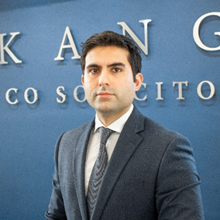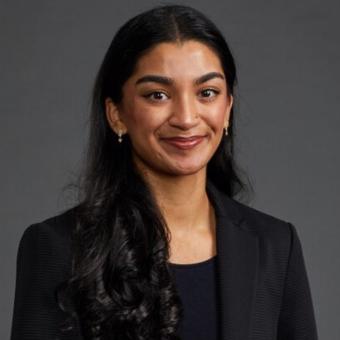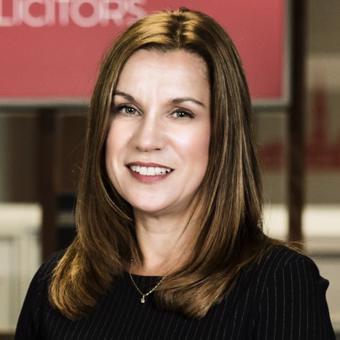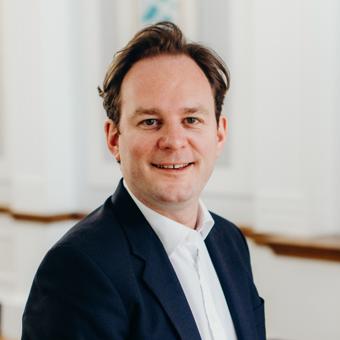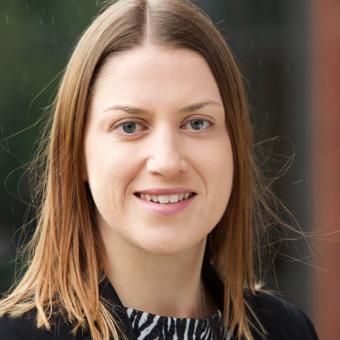Manjinder Kang established Kang & Co Solicitors in 2016 as a specialist motoring defence firm. Now in the Legal 500 and top ranked in the UK’s Chambers and Partners, he tells The Brief about a typical day in his life as director and principal solicitor at a practice that deals with clients from all over the country who are accused of complex and serious driving offences.
I start the day by dropping my children off at nursery before driving to Kang & Co’s head office in Birmingham city centre. We also have branch offices in Milton Keynes and London, but these are mostly used for client meetings, so I am usually based in Birmingham.
It takes about an hour to drive to the office, and I usually get to work by around 8.15 to 8.30am.
The first thing I do when I arrive is to check my emails to assess any that require urgent action. Then we have a team meeting before the office opens officially at 9.00am.
The team currently consists of me, a barrister who is a co-director, and a team of trainees, paralegals and legal advisers. Our commitment to client care and results driven approach means the firm is continuing to grow with a substantial increase in new clients seeing us actively recruiting.
Kang & Co are passionate about staff training. In motoring defence, it is very important to be precise and follow a particular process so as a director it is important to me that we train our own solicitors. It is a long and time-consuming process, but I know it will pay dividends as we grow.
Team meeting
Because we are such a specialist firm, and we represent clients throughout England and Wales, immediately at 9.00am things start to get quite hectic. So, before that happens, I go through the emails that have come in overnight with the team and decide which team member will be assigned to each task.
These enquiries often come in while we are closed because we still receive a lot of emails and enquiries when the office is shut. Clients that contact us are often distressed and require urgent advice and representation so we aim to reply to all new enquiries as quickly as possible.
Initial calls
During these initial phone calls we establish whether we can help potential enquiries, and if we are able to help them explain the likely legal fees involved. Sometimes during these initial conversations, which are free of charge, we will establish that they don’t actually need a lawyer.
If, for example, somebody with a clean licence has been caught doing 37mph in a 30mph limit, they acknowledge that they did it, and all of the paperwork from the Police is in order, which it usually is now, then if they accept a fixed penalty notice they will get three points on their licence and a £100 fine. If we were to take it to Court, the best we could get for them would be three points, so there wouldn’t be much of a difference but it would have cost them a lot more money.
Making a difference
We only want to be appointed on cases where we can make a substantive difference, for example helping people avoid a driving ban or substantially reduce the duration of the ban, or in serious cases avoid a prison sentence.
This was one of the reasons I specialised in motoring defence law. I trained at a Legal Aid firm where I did a lot of general criminal work, and one of the issues I found was that a lot of the clients were repeat offenders, and I questioned myself on the difference I was making.
You might get an acquittal but then three months later they would be back in Court again for another offence, so it was hard to feel that you were really making much difference to their lives.
However, with motoring defence you are working with people who have just made a mistake. They haven’t gone out deliberately to commit a crime, and if you can help them, then you are potentially making a substantial difference not only for them and their families but their long-term career. A conviction for a driving offence can have long-term repercussions and helping those people really provides job satisfaction.
Client conferences
After the team meeting I, and my colleagues, will carry out pre-arranged conference calls with clients who have instructed us. I generally deal with the more serious cases: prosecutions such as dangerous driving, causing death by dangerous driving or careless driving.
I would usually have at least one conference booked into my diary each day, which I would have prepared a few days before. During these calls we go through the available evidence with the client, take them through the next steps, explain what can and can’t happen, what the law is and the options they have.
At Kang & Co we only work with private-funded clients, because I have found in the past that insurance-funded cases can be restrictive, and insurers don’t necessarily let their drivers pursue cases the way you believe will achieve the best outcome for clients. A private funded client is much more motivated to take a case to trial where we can make a difference.
One of the reasons we conduct the first conferences by phone is to keep the costs competitive for clients, as this ensures we are accessible to clients from all financial backgrounds. The simpler cases can usually be handled entirely over the phone.
However, for the more complex and serious cases, which are heading toward a trial or heard in a Crown Court, we will usually carry out in-person conferences. This will be based on the fee quoted.
These clients will already have had an initial telephone conference but, as they progress and we gather all the evidence, we will usually see them face-to-face.
Preparation conferences include the barrister, and we would go through all the evidence in detail, and advise them how the trial will progress, so everyone is prepared. It’s a team effort, because if the client does not understand their case then the quality of their evidence won’t be very good and this reduces the chance of their case being successful.
Their day in Court
In an average week we can have up to 100 cases in Court, therefore we need to be on top of our diaries to make sure we know which cases are due in Court the next day. We will usually speak to the barristers we have instructed in these cases the day before the hearing to confirm key points and raise any issues we want to flag up.
On the day they go to Court the client will have a short meeting with the barrister, so we want to make sure that the barrister is fully up-to-speed before this. We also make sure we call and email the client the day before they are due in Court, to remind them where they need to be and when.
This is important because quite often the timing of a hearing will change at quite short notice, so we need to make sure we communicate those changes to our clients. Once they instruct us, it is our job to take care of everything, and listings are always getting changed so we need to be on top of that.
We also have calls coming in from barristers throughout the day letting us know the outcome of cases. Following these calls we will contact the clients in those cases to make sure they understand what has happened, and to answer any questions they might have.
Client care is paramount for us. The majority of our clients have never been in trouble with the police before, and they are often frightened and vulnerable.
Police interviews
Another part of my role involves representing clients who have been asked to attend Police stations for voluntary interviews, if they are under investigation for serious offences. People are entitled to free representation at the Police station under the Legal Aid scheme but the clients who come to us are generally looking for high end, specialist representation, and our package includes liaising with the Police, obtaining pre-interview disclosure, a conference call with the client beforehand, and then representing them at the Police station.
Some months we have three or four of these interviews, and other months we will have ten or 15. They can take place all over the country, so in many cases it can mean a full day out of the office.
On those days I would usually check in with the team on the phone, hands-free, while I am driving to and from the interview, and would be available on the phone to deal with any queries from them.
Winding down
If I am in the office, I try to finish at 5.00pm so I have time to pick the children up from nursery, take them home, have some food and bath them. After that I tend to go to the gym to unwind.
During the day I deal with numerous emails and calls to ensure that everyone’s case is dealt with properly. The office day is very hectic and, as well as all the client work, there are all the general management, marketing and administrative duties that come with being director of the business, so the gym provides a bit of downtime that helps me relax and switch off.
Then, when I get home from the gym, I’ll usually check the emails one last time to see if there is anything else I need to do, ready to start all over again the next day!
Visit:
- Connect with Manjinder Kang via LinkedIn
